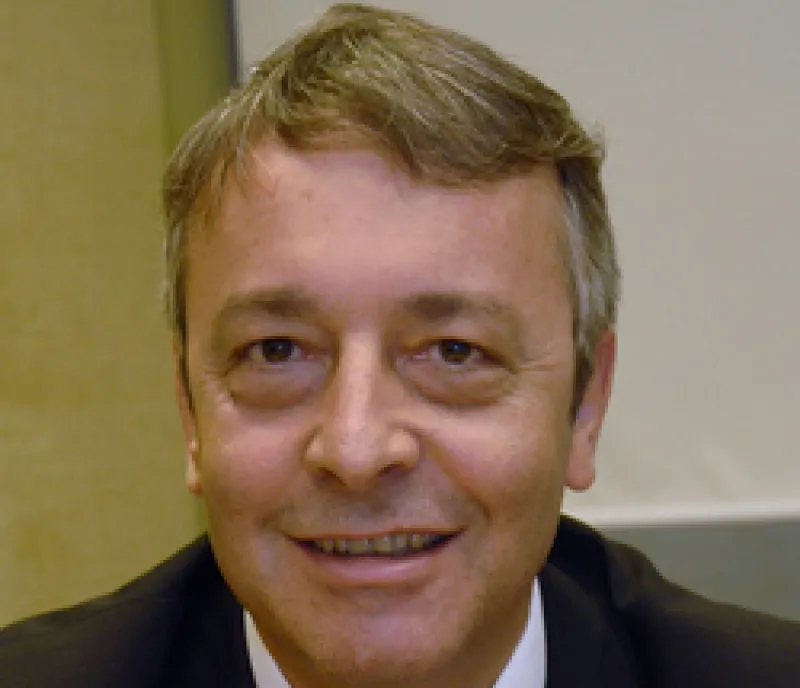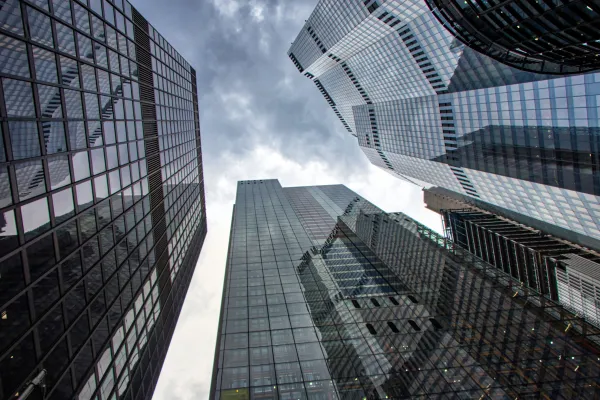Along with refreshing the palate, water revives the soul. Yet we have misused this natural bounty so recklessly that some scientists fear water can no longer be considered a renewable resource. Paris-based Veolia Environnement, which started out as Compagnie Générale des Eaux in 1853, is now a leader in sustaining the world’s water supply.
In his 2009 book, Water: Towards a Culture of Responsibility, Veolia’s CEO and chairman, Antoine Frérot, contends that most countries have adequate water resources but lack the knowledge or resolve to manage them. For example, Mexico City loses more water through leaks each day than Rome consumes. In developing countries fully 90 percent of wastewater gets returned to the sea or to rivers, untreated. “If humanity can be water’s worst enemy, it is also, when it wants to and when it resolutely gives itself the means, water’s best friend,” asserts Frérot. “Making water last while satisfying the needs of mankind is without doubt one of the greatest challenges to emerge in the 21st century.”
It is also Veolia’s core corporate mission. With €35 billion ($50.7 billion) in revenues, the company manages water, waste, energy and transportation, mainly through long-term public-private partnerships. Frérot, 53, is an École Polytechnique engineer who spent more than two decades at Veolia — including seven years as head of Veolia Eau, the water business — before becoming CEO in November 2009. He says he wants his company to operate around four principles: be more selective in undertaking projects; leverage technology; favor big cities or other challenging environments; and use Veolia’s scale — it has some 300,000 employees in 77 countries — to its advantage.
The CEO would like to increase Veolia’s profitability as well as its size, but without assuming more debt. The company has net loans of €15 billion against operating income of €2 billion. Frérot has already begun hiving off business units to raise capital. In his first full year as CEO, he managed to boost adjusted operating income by 8.5 percent without taking on any extra debt. He spoke recently with Institutional Investor Contributor Jayne Jung about the world’s water needs and Veolia’s own liquidity concerns.
Institutional Investor: Is the world facing a water crisis?
Frérot: The first water issue facing the world today is not water scarcity. It is the huge problem of access to water for the poorest populations around the world. There are over 1 billion people who do not have access to safe drinking water; more than 3 million people every year die because of the lack of safe water. So the absolute priority for the world community is to find the right mix of technological, financial, economic and institutional solutions to bring safe tap water to these people. Veolia Water has contributed to this process by proposing our services outside Europe — in China, for instance. We are also experimenting with innovative ways to bring safe tap water to poor rural areas of Bangladesh, with Nobel Peace Prize winner Muhammad Yunus.
Doesn’t the whole world confront a shortage of water?
The second issue is indeed water scarcity, but not in the sense that the quantity of freshwater is somehow decreasing because of climate change or for any other reason. The amount of freshwater on the earth is constant. The problem is that there are more and more people concentrated in cities, who are drawing more and more on this same amount of water. There are two different ways to deal with this scarcity issue: One is to manage water more efficiently — there are many techniques to do so — and the other is to create alternative water resources. The two main ways of doing that are by desalinating seawater, although the cost is high and it requires large amounts of energy — our R&D programs are trying to reduce the cost — or by reusing wastewater. We believe that water reuse is probably a better solution for water-stressed cities, as wastewater is there where you need it, grows in direct proportion to usage and avoids water pollution, since reuse requires properly collecting and treating wastewater. Veolia has built more than 20 percent of the alternative-resource water plants in existence today.
What about the world’s waste? Doesn’t that pose real risks?
The issue is less waste itself than the growing scarcity of raw materials. The strong economic growth of emerging countries has led to ever-greater demand for raw materials and hence to scarcity. We need to find new ways to obtain raw materials, and a major way is by collecting, sorting and recycling waste. This involves inventing new technologies to extract raw materials from waste and sort them automatically, thereby reducing the cost.
Do you see big problems for cities if they keep growing?
Cities will continue to grow. Half of the world’s population now lives in cities, and by 2030 that number will have risen to 70 percent. Every year, Los Angeles attracts 100,000 new inhabitants. In China, Shenzhen’s population exploded, growing from 100,000 people to 14 million in 15 years! We will not be able to avoid the growth of cities, so the issue is to make this urban growth sustainable. That is the major issue for the planet.
You plainly see Veolia as having a mission, but what’s your edge as a business?
We have two great advantages. Our four businesses are all in growth markets due to long-term trends, mainly growing urbanization and increasing scarcity of natural resources and raw materials. Plus we have the leading expertise to provide solutions.
What impact did the global financial crisis have on Veolia?
It made us adapt our strategy so that we can grow without increasing our debt and return to the profitable growth we were achieving prior to the crisis. We have developed a clear and proactive strategy that involves becoming more selective in our investments and more agile in optimizing our business portfolio.
How so?
Being more selective means protecting the profitability and productivity of today’s leading positions, those activities and regions with strong positive cash flows, while also targeting priority sectors and regions that are fast growing and have the most potential to generate profits — the leading positions of tomorrow.
Such as?
These priority segments share common features. They are businesses where demand is high and the response is still in an embryonic state and where the issues are complex or require cutting-edge technology and rare know-how. In water these include comprehensive management contracts in large cities, particularly in Europe and Asia, and support for industrial clients in emerging countries.
You talked about being more agile?
Yes, the other part of this strategy involves becoming even more flexible in optimizing our business portfolio to concentrate on businesses that are less cyclical and hold the best promise. We are continuing to invest in both our existing contracts and for future growth, but without increasing our debt. So we have to generate investment monies from within our business, both through cash flows and through divestments. That is why we have reinforced our productivity plan and defined a divestment program of €4 billion for 2011 through 2013 to draw resources from nonpriority sectors and geographies and channel them to priority sectors like those I just mentioned. We do not need or plan to make any major acquisitions, because with our strong existing positions, organic growth is a better, cheaper way for us to grow.
What did you learn from your predecessor, Henri Proglio?
My 20 years working closely with Henri taught me the importance of having a vision. To build a big and great company, you need to understand the long-term trends and dynamics of the world economy and polity, not just the short-term drivers. Second is the importance of detail. In a service business you need to focus on every detail and on every improvement that you can make, however small. A third lesson is that in a labor- and technology-intensive business like ours, we constantly need to be ahead of the game. • •






